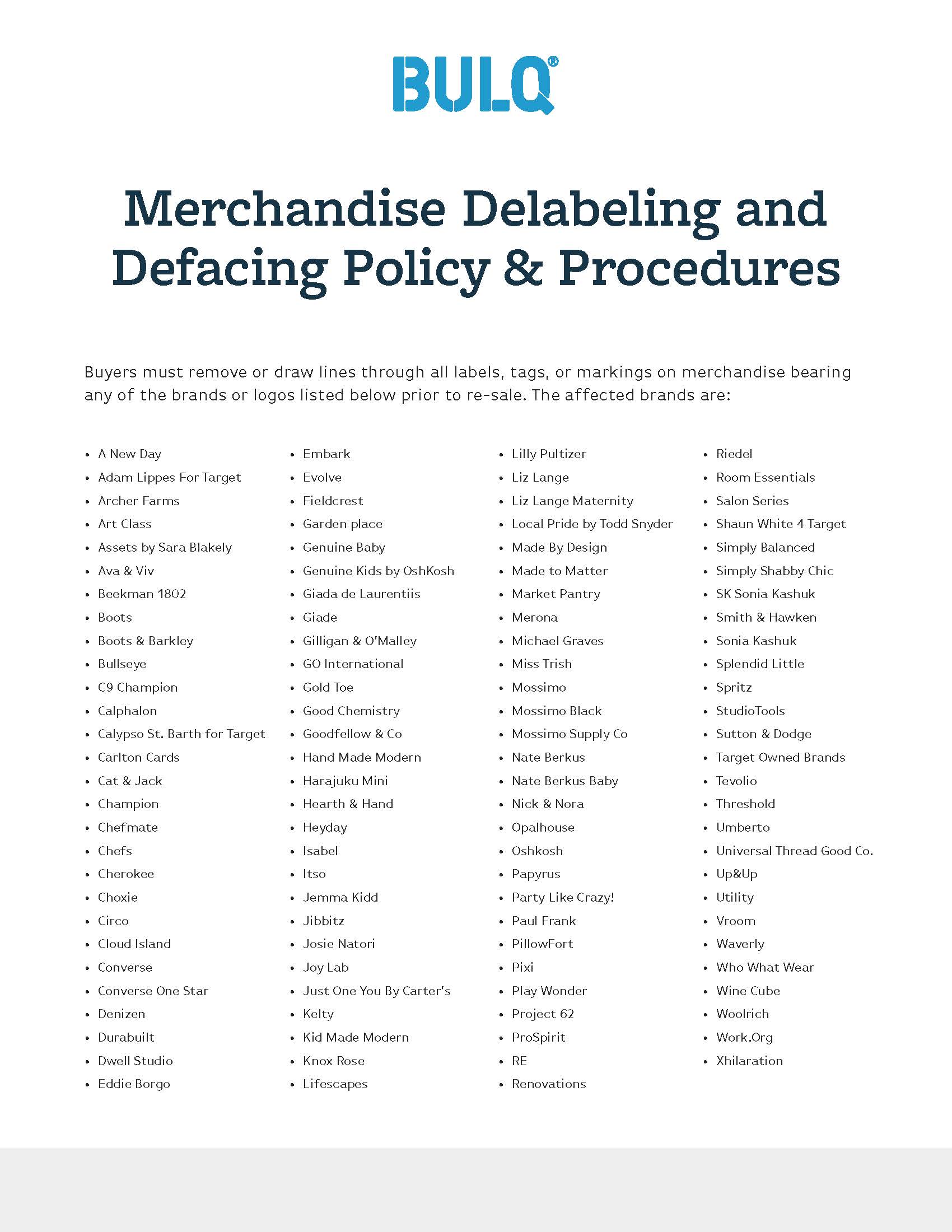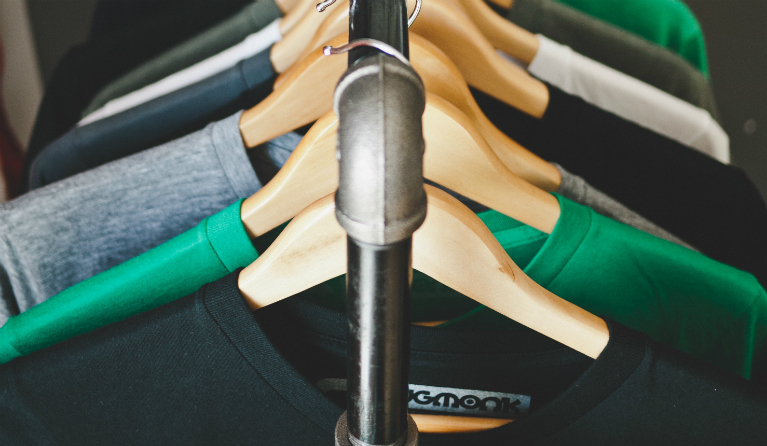Ever come across a shirt with the inside label crossed out? Or see an item with the UPC blacked over?
Delabeling, also referred to as defacing, is a process that some retailers require when selling their goods on the secondary market. For resellers, this merchandise can present a fantastic return on investment, as it’s often from well-known or high-end brands. However, it’s important to understand retailers’ policies when sourcing this type of inventory.
Here are a few things to know before purchasing a lot that requires delabeling.
What does “delabeling or defacing” mean?
To delabel an item, you must remove or alter the labels, tags, or other markings, such as UPC codes. Defacing an item’s labels is usually as simple as drawing a thick black marker line through it.
Who is responsible for delabeling?
Sellers who purchase shelf-pulls or overstock goods originating from certain retailers are responsible for delabeling these goods. The retailer or liquidation supplier will note if the products require delabeling.
Why do I need to delabel certain items?
There are several reasons why certain retailers require delabeling. For some, delabeling avoids the risk of an end customer attempting to return an item to a store for a refund or credit. Another is to clearly distinguish an excess item sold by a reseller from an item sold directly by the retailer. Even though the items are the same, the excess product will likely be sold at a lower price. Delabeling ensures the item does not get returned or mixed into the retailer’s other channels.
Only certain retailers require products be delabeled or defaced prior to resale. Check out BULQ’s Delabeling Policy to see which brands are affected in our inventory.
Why source items that need to be delabeled?
Many retailers that require delabeling are some of the world’s top brands, known for their high-quality and in-demand products. As such, their merchandise is a great opportunity to offer high-end items at a discounted price. Delabeling doesn’t impact the functionality or condition of the items; so long as customers don’t mind an altered label or lack of original packing, they can generate a great profit.
How do I delabel items?
While delabeling requirements vary by retailer and individual product, there are a few standard ways to delabel certain categories of items. Be sure to read the specific delabeling or defacing policies provided when you purchase items that require it.
Packaged Goods
Packaged goods can often include home items, like kitchenware and bedding. To delabel these items:
- Remove the product from its packaging.
- Remove or draw lines through all brand identifiers and UPC codes using a permanent black marker (the lines must be vertical for UPC codes).
- Discard all warranty cards and registration information.
Apparel & Accessories
This category can include clothing, shoes, jewelry and other common accessories. To delabel these items:
- Remove all hang tags and draw lines through brand identifiers or logos.
- Remove or draw lines through all sewn-in labels with permanent black marker and remove heat stamps completely wherever possible. Pro tip: If you double-stamp heat stamp labels, the writing will become illegible and you will meet the requirement.
Where and how should I sell delabeled items?
To sell delabeled or defaced items, you’ll need to be a bit more creative when it comes to merchandising.
Certain marketplaces, particularly Amazon, have strict policies about offering “like new” items, which can make selling delabeled products difficult. Instead, try listing the product on a less restricted platform, like eBay, for maximum impact.
No matter the marketplace, when listing a delabeled item, be upfront about its condition while presenting the product in the best light possible. Include a photo of the marking to show that it doesn’t affect the condition of the item, as well as pictures that highlight details of the product’s quality. And, of course, be sure to market that the item is being offered at a huge discount!
Now what?
Now that you understand delabeling, it’s time to start sourcing. Be sure to review our Delabeling Policy before purchasing a wholesale lot that requires delabeling. And, as always, if you have any questions, our Customer Care Team is here to help! Just send them an email at help@bulq.com.
Download a printable version of BULQ’s Delabeling Policy by clicking below!





Is there a way to search on the Bulq site that excludes products or brands requiring delabeling? Or, in other words, search that only shows products that do NOT require delabeling? If not, may I suggest that others would also likely find it useful. Very easy to set up.
Hi Brian – At this time our filters do no filter out lots that may require delabelbing, but we welcome the suggestion and will be sure to keep it in mind as we continue to advance the BULQ buying experience.